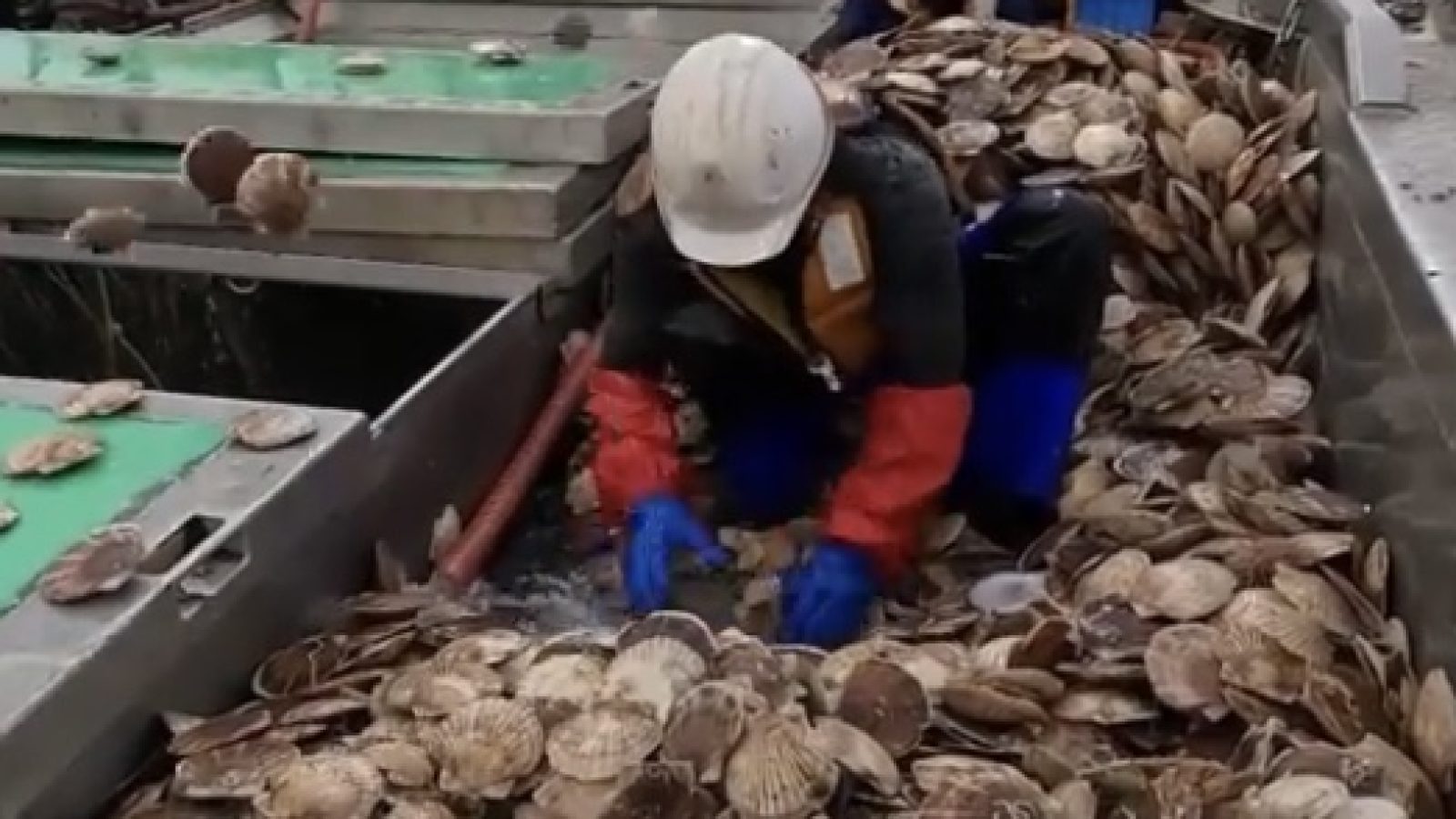According to a Reuters report, the U.S. military has started to bulk purchase Japanese seafood for its troops after China banned such products.
China banned Japanese seafood after Japan released treated water from its Fukushima nuclear plant into the Pacific Ocean.
The release of radioactive wastewater heightened tensions between China and Japan.
China called Japan’s move a “selfish and irresponsible act.”
In an interview with Reuters on Monday, U.S. ambassador to Japan Rahm Emanuel said “Washington should also look more broadly into how it could help offset China’s ban that he said was part of its ‘economic wars.'”
According to the outlet, China’s ban on Japanese seafood imports was due to “food safety fears.”
'Economic wars': US military bulk buys Japanese seafood to counter China ban after Tokyo releases treated water from the crippled Fukushima nuclear plant into the sea https://t.co/mpCDl1pQMM pic.twitter.com/Db42p6epge
— Reuters (@Reuters) October 30, 2023
Reuters first reported the developments:
The U.N.’s nuclear watchdog vouched for the safety of the water release that began in August from the plant wrecked by a 2011 tsunami. G7 trade ministers on Sunday called for the immediate repeal of bans on Japanese food.
“It’s going to be a long-term contract between the U.S. armed forces and the fisheries and co-ops here in Japan,” Emanuel said.
“The best way we have proven in all the instances to kind of wear out China’s economic coercion is come to the aid and assistance of the targeted country or industry,” he said.
Asked about Emanuel’s comments at a press conference on Monday, China’s foreign ministry spokesperson Wang Wenbin said: “the responsibility of diplomats is to promote friendship between countries rather than smearing other countries and stirring up trouble”.
The first purchase of seafood by the U.S. under the scheme involves just shy of a metric ton of scallops, a tiny fraction of more than 100,000 tons of scallops that Japan exported to mainland China last year.
Emanuel said the purchases – which will feed soldiers in messes and aboard vessels as well as being sold in shops and restaurants on military bases – will increase over time to all types of seafood. The U.S. military had not previously bought local seafood in Japan, he said.
The U.S. could also look at its overall fish imports from Japan and China, he said. The U.S. is also in talks with Japanese authorities to help direct locally-caught scallops to U.S.-registered processors.
US Military Buys Japanese Seafood Despite China Ban https://t.co/t0Gauh3RWq via @newsmax
— Chris 🇺🇸 (@Chris_1791) October 30, 2023
The release of the radioactive wastewater is expected to take several decades.
The release of the treated radioactive Fukushima water is expected to take several decades pic.twitter.com/pzWoFyzkGi
— RT (@RT_com) August 24, 2023
“Japanese fisher groups had opposed the plan fearing damage to their livelihoods,” the Associated Press noted.
BREAKING: China has banned seafood imports from Japan after the tsunami-wrecked Fukushima nuclear plant began releasing treated radioactive water into the Pacific Ocean.
Japanese fisher groups had opposed the plan fearing damage to their livelihoods. https://t.co/Jg4fA4mM0k
— The Associated Press (@AP) August 24, 2023
More from AP:
People inside and outside the country protested the wastewater release, with Japanese fishing groups fearing it will further damage the reputation of their seafood and groups in China and South Korea raising concerns, making it a political and diplomatic issue.
In response to the wastewater release, Chinese customs authorities banned seafood from Japan, customs authorities announced Thursday. The ban started immediately and will affect all imports of “aquatic products” including seafood, according to the notice. Authorities said they will “dynamically adjust relevant regulatory measures as appropriate to prevent the risks of nuclear-contaminated water discharge to the health and food safety of our country.”
Shortly after China’s announcement, Tokyo Electric Power Company Holdings President Tomoaki Kobayakawa said the utility was preparing to compensate Japanese business owners appropriately for damages suffered by export bans from “the foreign government.” He said China is a key trading partner and he will do his utmost to provide scientific explanations of the release so the ban will be dropped as soon as possible.
The Biden administration doesn’t appear concerned about feeding U.S. troops potentially toxic seafood.
Economic warfare seems more important.
Newsmax added:
Emanuel, who was former U.S. President Barack Obama’s White House chief of staff, has in recent months made a series of blunt statements on China, taking aim at various issues including its economic policies, opaque decision-making and treatment of foreign firms.
That has come as top U.S. officials, including Secretary of State Antony Blinken, have visited Beijing in an effort to draw a line under strained ties.
Asked if he considered himself hawkish on China, Emanuel rejected the term and said he was a “realist.”
“I don’t consider it hawkish but just consider it realist and honest. Maybe the honesty is painful, but it’s honest,” he said.
“I’m all for stability, understanding. That doesn’t mean you’re not honest. They’re not contradictory. One of the ways you establish stability, is that you’re able to be honest with each other.”
He said China faced major economic challenges exacerbated by a leadership intent on turning their backs on international systems.




Join the conversation!
Please share your thoughts about this article below. We value your opinions, and would love to see you add to the discussion!